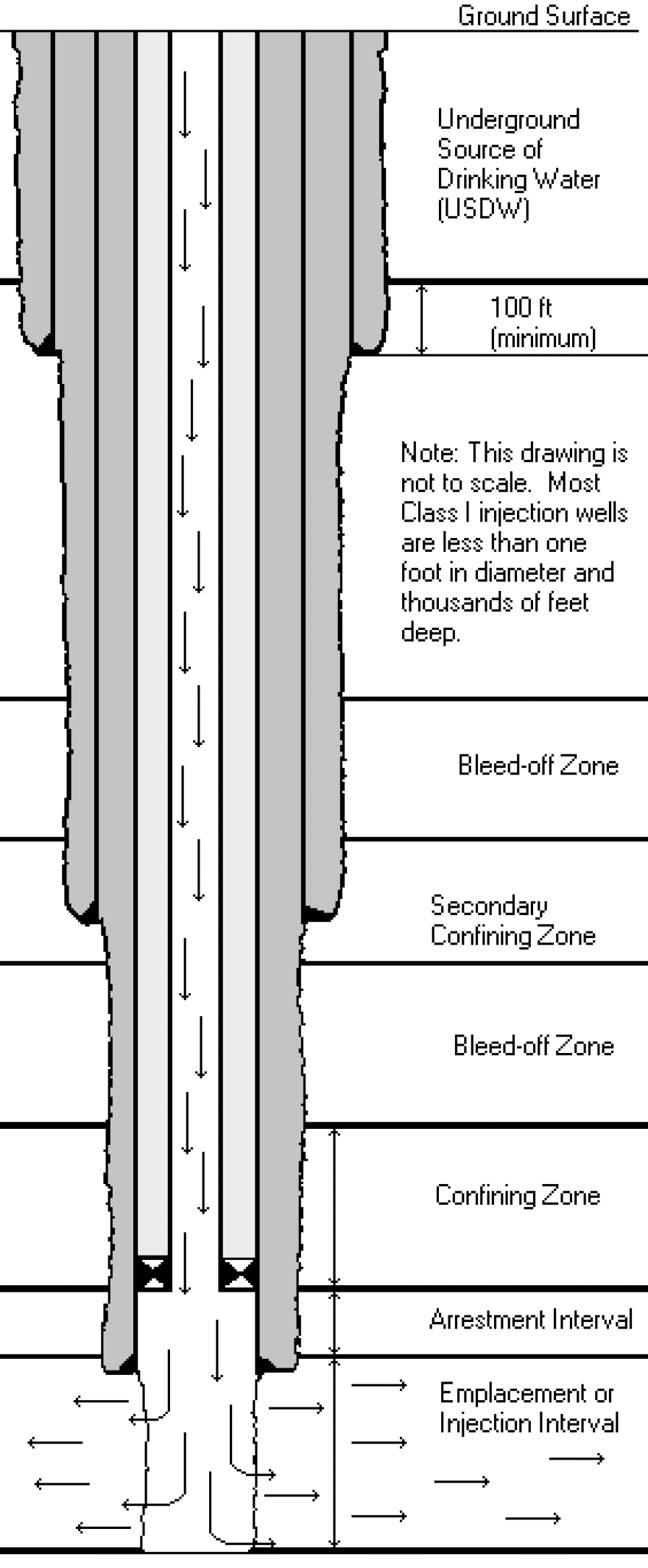For decades, residents living near the Wexford County Landfill have been dealing with contaminated drinking water. The landfill was built in the 1970s and was mismanaged at times. Now, a new proposal at the site is creating new concern for residents.
In 2005, Rita McNamara’s well broke. She’d been getting by with an old farm well for about a decade, but now she needed a new one. So she called the driller, and they were out walking around McNamara's house in Manton when a woman from the Wexford County Health Department showed up.
"And she had a clipboard in her hand," says McNamara, "and she said, ‘woah, woah, woah, woah, woah. You can’t just drill a regular well here. ... you are in a restriction zone.’"
McNamara says that was the first time she'd heard about it.

McNamara says the county health official told her she would have to get a special kind of well drilled. That well would be twice as expensive as a normal – just under $14,000. So McNamara went to the Wexford County Department of Public Works.
"I said, ‘I’ve got to drill a super-duper, special well because of your practices at the landfill. So guess what? I’m not paying for it. You are.’ And it took awhile, but yeah, they paid for that well," she says.
Are leachate injection wells safe?
The landfill was built by Wexford County decades ago and is now owned by American Waste. They bring trash there from all over northern Michigan.
All landfills have a byproduct called leachate; it’s water that’s been contaminated by trash. Last year, American Waste applied for a permit to inject that contaminated water underground instead of trucking it off-site to be treated.
American Waste declined to comment for this story. Maybe that’s because the proposal is controversial. Residents nearby question if a leachate injection well is safe.
"Until somebody can find a way that we don’t generate any waste, there’s going to be a need to dispose of it
"Let's face it, nothing that we do as human beings is entirely risk-free. We can't guarantee that." - Hal Fitch (MDEQ)
somehow," say Hal Fitch. He works for the Michigan Department of Environmental Quality, the state agency that will decide if American Waste can build the well. He’s the head of DEQ’s oil, gas and mineral division.
Fitch says it’s safer to inject leachate underground than truck it off-site.
"They can only be injected into deep formations that are isolated from freshwater," says Fitch.
He says in Wexford County the proposed well would be more than 3,000 feet deep. That’s about 2,000 feet below the freshwater that people in Manton drink.
“And in between that freshwater zone and the proposed injection zone are multiple layers of very low permeability rock," Fitch says.


He says Michigan has a long history of safe injection wells, with no cases where drinking water has been contaminated.
"That’s been the company line – if you will – for a long time, and the statement's been made many times by the DEQ," says Christopher Grobbel, an environmental consultant in the Traverse City area. He used to work for the DEQ.
Grobbel says there have been numerous violations and releases, including the Hoskins Manufacturing deep injection well in Mio and Enviroment Geo Technologies in Romulus.
"So, there have been problems in Michigan," he says.
Grobbel says there may not be evidence of groundwater contamination, but there was evidence of soil impact. And, he adds, injection wells have contaminated water in Florida and Texas.
Who takes on the risk?
"Let’s face it, nothing that we do as human beings is entirely risk-free. We can’t guarantee that," says Fitch from the DEQ. "But we feel, in the case of injection wells, that they’re what anybody would deem to be safe ... as long as they’re constructed and operated according to our standards."
That doesn't bring Rita McNamara comfort.
"Why do I need to have any risk?" she says. "When this company bought the landfill, they were well advised what the cost of operations were. The leachate had been being hauled for – I don’t know – I’m going to say 25 years at least. ... And it does not make any sense to me that they would further be allowed to endanger this community."
McNamara’s not the only one who feels that way. All local municipalities – Wexford County, Manton, Cadillac and Cedar Creek Township – came out against the proposed injection well.

Contaminated water migrates underground; it’s not stationary. McNamara says right now the contamination line is about a thousand feet from her house.
Volatile organic compounds are one of the contaminants in the water around the landfill. They can cause liver and kidney damage or cancer, according the the U.S. Environmental Protection Agency.
So seeing that contamination line so close makes McNamara scared, she says.

Residents fight over contamination for years
More than five years ago the county paid to settle a lawsuit over the contaminated water with McNamara and more than 70 other residents. The settlement money was over a million dollars and was divvied up among the affected residents.
But now McNamara says this new well proposal makes it feel like they still have a target on their backs.
She says the only things standing between residents and the injection well is the EPA and DEQ – who will decide if the injection well should be allowed.
"[The DEQ] haven’t done a great job over the history of this landfill so it’s hard to trust that," says McNamara.
Neither the DEQ nor EPA have made a decision yet, and they’ll hold a public hearing before they do. Hal Fitch says the DEQ cares about public input, but, ultimately, the state will follow the law.
"So if that well meets all the regulations and ... [American Waste] can demonstrate that it has all the necessary safeguards, ... then they qualify for a permit," says Fitch. "And that’s what our decision has to be based on."
Fitch says a public hearing is expected in mid-February.


